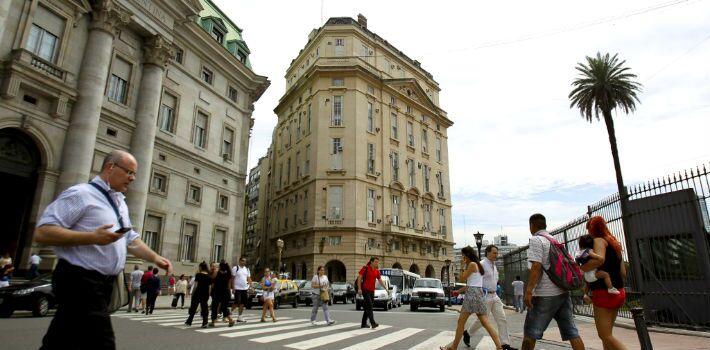
EspañolOn July 7, the Cristina Kirchner administration published a decree setting the new guidelines for Argentina’s Federal Intelligence Agency (AFI) formed in January. The new intelligence agency will be tasked with unique roles, such as preventing “economic coups,” bank runs, and currency offloads.
According to the addendum to decree 1311/2015, the agency will function as a “doctrinaire body aimed at laying the foundations for a process of profound reform and modernization of the National Intelligence System.”
Following criticism that the former Secretariat of Intelligence was too prone to political manipulation, Kirchner has instructed the AFI not to “spy” on Argentinean citizens. Instead, the “national intelligence [system] should ensure the protection and care” of the public, she says.
The 408-page document also lays out how the government will handle future authorizations for wiretaps on intelligence targets, shifting responsibility from the judiciary to the Public Ministry.
Going forward, the AFI will oversee the security of Argentineans when faced with “risks or conflicts generated by external factors” and terrorism. Further, the order defines which actions the Argentinean state will consider as attacks against the “constitutional order” of the country, such as military rebellions, drug and human trafficking, and “economic warfare.”
The AFI is tasked with protecting against actions taken by businesses and the banking and financial sectors that could incite “bank runs, currency offloads, shortages, or economic coups.”
The term “economic coup” is loosely defined as an action taken by large business interests that destabilize the economy in order to force political change.
La nueva KGV Argentina hará Inteligencia interna para para evitar "corridas y golpes de mercado". Es decir, meter… http://t.co/Cj1pehrZXC
— Agustín Etchebarne (@aetchebarne) July 7, 2015
“The new Argentinean KGB will carry out domestic intelligence to avoid ‘[bank] runs and economic coups.'”
Argentina’s National Intelligence System is comprised of the Federal Intelligence Agency (AFI), which answers to the president, the National Directorate of Criminal Intelligence, which depends on the Security Ministry, and the National Directorate of Strategic Military Intelligence headed by the Defense Ministry. The AFI “is the superior body and directs the National Intelligence System,” reads Article 12 of the addendum.
Article 6 explicitly forbids the intelligence agency from collecting information of political, institutional, social, economic, and cultural nature, or any other knowledge “outside of issues relating to military, defense, or crime.”
“Keynesian Foolishness”
Argentinean economist Javier Milei told the PanAm Post that assigning the new agency with monitoring economic disruptions is “a side effect of Keynesian foolishness.” Followers of Keynesian economics, like Economy Minister Alex Kicillof, don’t embrace the subjective theory of value, he explains. In other words, to Keynesian economists, pricing is solely determined by company returns, the cost of labor, and productivity.
“When prices begin to rise, they hold the labor unions, along with business owners, responsible. They believe this Marxist idea that pricing is determined [by companies] as a mark-up above the costs.”
Milei says instructing the AFI to prevent “economic actors” from causing inflation is an “act of ignorance,” since it is the government who actually creates inflation. “The expansion of Argentina’s money supply exceeds the true demand for the currency, and this causes prices to increase as a result,” he argues.
The new intelligence agency guidelines stem from a faulty “Keynesian understanding” of value, Milei says, adding that the whole thing is a “farce.”
“They think Newton must have headbutted the apple, rather than it falling on his head. They have a distorted view of how the system works,” Milei argues.
“The government sets price controls, but this type of policy is never effective, and they obviously see the negative results.” The problem is, he says, when the government sees these poor results, they interpret them as some sort of conspiracy, causing them to further tighten their controls and “suppress individual liberties.”
 Versión Español
Versión Español












